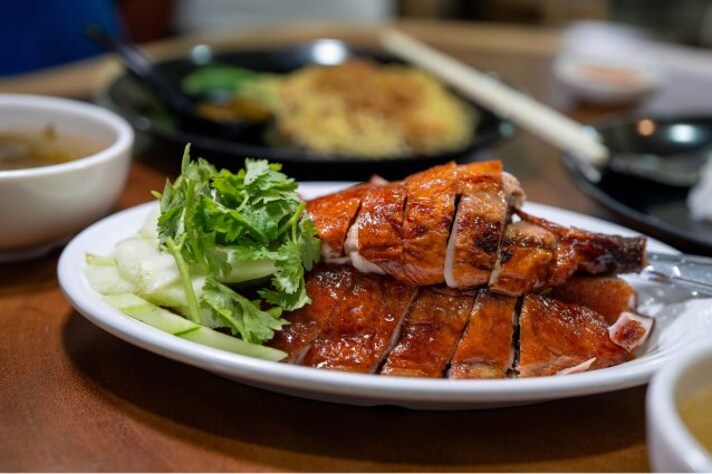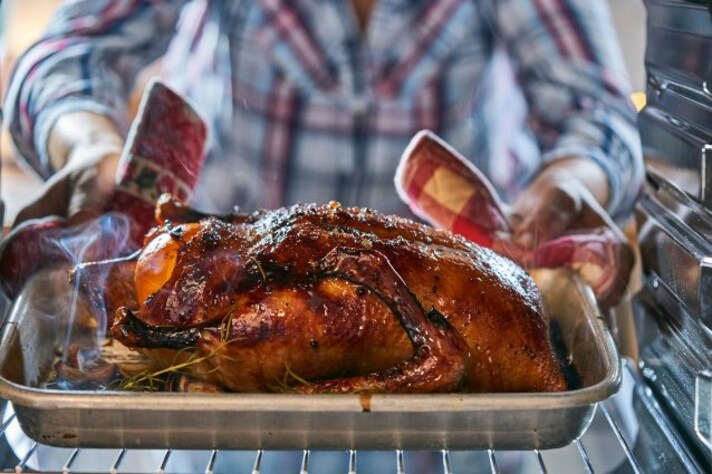
When it comes to cooking duck, it’s easy to assume that the rules for poultry apply across the board: season generously, add a bit of oil or fat, and roast away. But duck is a breed apart—literally and figuratively. Adding oil to your duck can ruin its natural potential and, worse, compromise the dish entirely. Here’s why you should skip the oil and let the duck’s natural richness take the lead.
Duck Is The Self-Basting Bird
One of the most fascinating traits of duck is its naturally fatty skin. Unlike chicken or turkey, duck is uniquely equipped with a thick layer of fat between the skin and the meat. When heated, this fat slowly renders, creating a self-basting effect that ensures the meat stays moist and flavorful throughout the cooking process. Adding oil is not only unnecessary—it’s overkill. Instead of enhancing the flavor, extra oil interferes with this natural process and can leave you with greasy results.
Duck fat is prized in kitchens around the world for its luxurious, velvety texture and rich taste. When rendered properly, it creates a perfect balance between crisp skin and succulent meat. Adding oil disrupts this harmony. Oil, being less dense than duck fat, sits on the surface and prevents the skin from properly crisping up. The result? A soggy, lackluster crust that feels more like a kitchen mishap than a culinary triumph.

A Flavor Clash You Don’t Want
Every layer of a duck’s fat brings a deeply savory, almost nutty flavor to the dish. Introducing oil—especially neutral or vegetable oils—dilutes that flavor. Worse yet, if you opt for a strongly flavored oil like olive oil, it can compete with the duck’s natural taste, muddying the profile you worked so hard to highlight. Letting the duck stand on its own allows its unique character to shine.
When Cooking Duck, Less Is More
When preparing duck, restraint is key. Simply scoring the skin and seasoning with salt allows the duck’s fat to render and work its magic. By adding oil, you’re not just adding unnecessary fat—you’re adding unnecessary complications. Excess oil can lead to uneven cooking, as the rendered duck fat has to contend with the oil you introduced. The results are often a greasy, unevenly browned bird that doesn’t live up to its potential.
Oil Can Ruin the Texture
The hallmark of a perfectly roasted duck is that glorious, golden-brown crispy skin. To achieve this, the fat under the skin needs to slowly melt and render out while the skin crisps up. Adding oil throws off this balance, creating a slick barrier that hinders the skin from reaching its full crispy potential. Think of it this way: oil is like rain on a parade—it makes everything soggy.

Duck’s Natural Fat is the Star Ingredient
Culinary traditions around the world highlight duck’s ability to render its own fat. In French cooking, for example, duck confit relies entirely on the fat rendered from the bird itself. Similarly, Chinese roasted duck achieves its iconic lacquered skin through careful preparation and rendering, not through the addition of outside fats. Why mess with centuries of perfected techniques?
Why Oil Complicates Cleanup
Cooking duck already involves a fair amount of rendered fat, which can create splatter and mess if not handled properly. Adding oil to the equation only multiplies the problem. With oil, you’re looking at a greasy oven tray or skillet that’s harder to clean and leaves you regretting your choices. Stick to the duck’s own fat—it’s flavorful and less messy to manage.
;Resize,width=767;)
